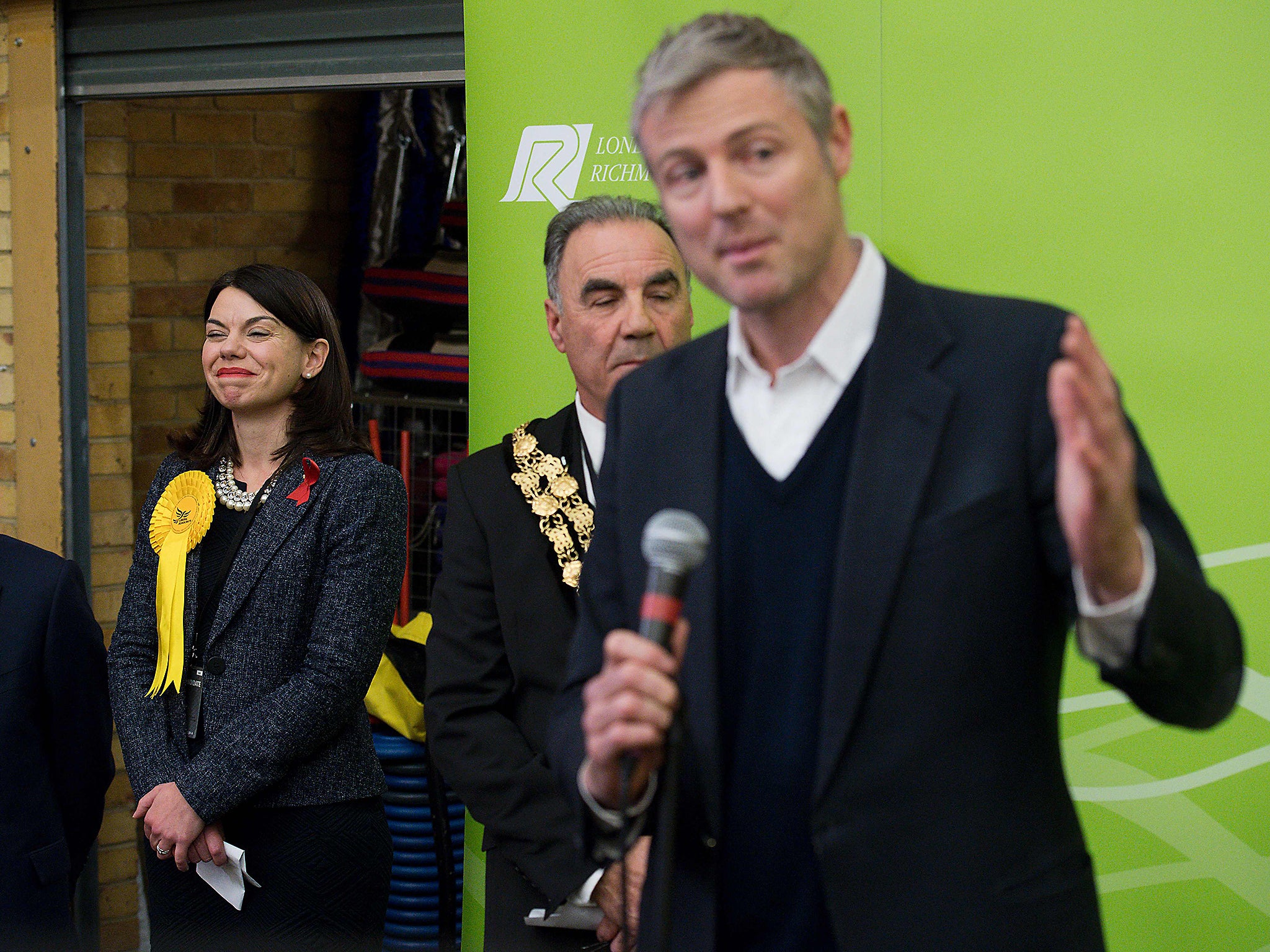Sarah Olney's victory over Zac Goldsmith signals a new political era for the Liberal Democrats
The Liberal Democrats, for the first time in about half a century, have the sole claim, at least in England, to be the party of Europe. Although that can feel lonely, they should be comforted by the fact that 48 per cent of those voting in the referendum rejected leaving the EU

It would be foolish for anyone to dismiss the Liberal Democrats’ win in Richmond Park, superficially easy as it is. The result adds to a parliamentary force still in single figures. It will not, in and of itself, change anything in government policy. It isn’t going to stop Brexit in its tracks.
Everyone knew that this extraordinarily prosperous, if noisily overflown, corner of the capital was Europhile, with many of its inhabitants dependent on the financial, legal and other sectors in London for their incomes and their house values. We know things are different in Grimsby. Indeed, given that the Liberal Democrat candidate Sarah Olney joined Zac Goldsmith in adamant opposition to Heathrow expansion, thus neutralising the issue, it might have been more of a surprise if the Richmonders had decided to carry on with their hardline anti-European MP (whose father, Sir James, arguably started the whole Brexit thing rolling with his Referendum Party campaign at the 1997 election).
Yet it is significant. First, it is a necessary restorative to Liberal Democrat health, which has not been good since they entered the coalition and the tuition fees fiasco. It is, in fact, the first time the Liberal Democrats have won a seat from another party since 2006, and the first gain from the Conservatives since 2000. Without anyone much noticing, the traditional conditions for a Liberal Democrat revival were reset at last year’s general election: a Conservative Government running into economic difficulties with a Labour opposition drifting off to the extremes, including a more Eurosceptic stance.
Not since the early 1980s have the conditions been more propitious for a revival, though nowadays the Liberal Democrats have to contend with Ukip and the nationalists as alternative vehicles for protest votes.
More significant than the psephology, though, is the political philosophy. The Liberal Democrats, for the first time in about half a century, have the sole claim, at least in England, to be the party of Europe. Suddenly, they have a clear cause rooted in their ideals. Having supported the European project from its earliest beginnings in the 1950s, through to saving the Maastricht Treaty from collapse in the 1990s, the Liberal Democrats have alone been unequivocal and brave in their support for the European project.
Although that can feel lonely, they should be comforted by the fact that 48 per cent of those voting in the June referendum rejected leaving the EU. In many countries such a significant minority – it hardly qualifies for the term “minority” – would be sufficient to bar any constitutional change on this scale. Arguably only a 60 per cent or a two-thirds majority – and parliamentary vote – should have been the trigger for Article 50.
As the Brexiteers argue, there is no point in rerunning the referendum or moaning about the fact that the Leave side won. However, Tim Farron and the Liberal Democrats are right to argue that the terms of the exit from the EU should be approved by a democratic vote, either in Parliament or in a referendum. Sir John Major and Tony Blair have also argued this case, and perhaps the Richmond result will remind those in government now that there is a large body of public opinion that is demanding such a say.
As the reality of Brexit dawns on many more people, it is perfectly reasonable for them to be able to assess whether the settled terms of Brexit, when they arrive, are indeed a better bet than the status quo – or, for some of the more ardent Leavers, a “hard Brexit” might even be preferable. We would then not be asked to buy a “pig in a poke”.
Those arguments are for the future, though the campaign starts now, and the Lib Dems’ victory in Richmond is one step towards them. For now, ministers would do well to listen to public opinion in its entirety and treat Parliament with more respect than it has been inclined to.
The Commons should be told much more than it has been about the issues at stake, and the Government’s ambitions. Until it does so, it will not win the argument about the terms of Brexit.
Until we have a vote approving the prospective terms of Brexit, the European issue will not be resolved.
Join our commenting forum
Join thought-provoking conversations, follow other Independent readers and see their replies
Comments
Bookmark popover
Removed from bookmarks